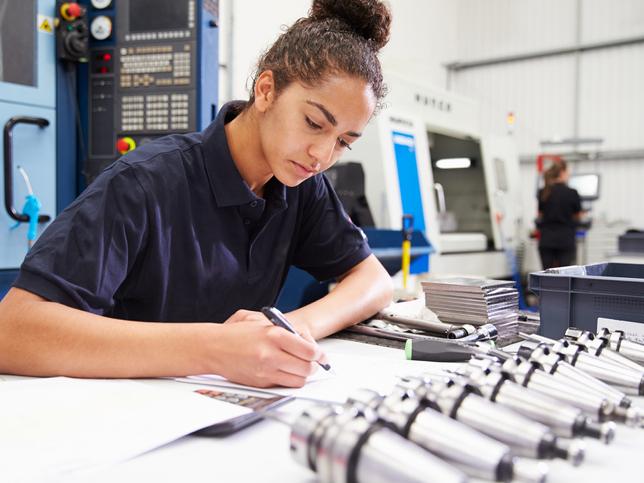Context counts. Learning in context can help students appreciate the relevance of disciplinary knowledge and skills, increasing their motivation and engagement. Meanwhile, learning that takes place outside the context in which knowledge and skills are to be applied can limit or reduce a student’s capacity to transfer and use that knowledge in the real world or in a new environment. While contextualising learning can present challenges for educators and designers of learning experiences, leveraging context can enhance the learning experience and learner outcomes.
In this second article in our series covering the seven principles in the Higher Education Learning Framework (HELF), we look at contextual learning in detail.
Learning occurs in context
The principle of “Contextual learning” explores how bringing learning into context can make the experience more meaningful to students. As part of the process of exploring content across different contexts and seeing how it is relevant, a contextualised learning experience prepares students for life outside the classroom. Students start to conceptualise how the knowledge they have gained during their studies is relevant to their intended profession, the workplace, other aspects of life, and the world more broadly. Contextualising learning in this way allows a more seamless transition from higher education to the world of work. For example, conducting and designing experiments with the scientific method and enquiry helps science students think critically about assumptions of knowledge that are pervasive in society.
- Principle 1: Learning as becoming: what do students become as a result of their HE experience?
- Principle 3: Emotions and learning: what role do emotions play in how and why students learn?
- Principle 4: Interactive learning: more than teamwork makes the dream work
Putting learning in context can make the learning experience more engaging and internally motivating for the student. This in turn can connect the learning experience more closely to life outside the classroom, thus making it relevant and memorable and reducing difficulty when applying new concepts to unfamiliar situations. Authentic learning and authentic assessment are common approaches used to place learning in the professional context. In these approaches, the learning framework draws on real-world tasks, situations and problems. In doing so, learning and assessment can authentically reflect the world of work and show how the student may be expected to transfer their knowledge and skills to the discipline and the professional context.
Contextual professional learning also introduces students to what it means to be a practitioner in their intended profession. It can help students develop their professional identity and efficacy as a future member of a particular profession or industry. Contextualisation also introduces students to other perspectives of other peers and disciplines and how those align with their own and in their unique contexts.
How can we implement ‘Contextual learning’ into higher education?
- Facilitate learning activities that allow students to think about potential and real-world applications of their knowledge. Explore and use contextualised approaches such as project-based learning, case-based learning and work-integrated learning. How do these contextualisation elements fit more broadly into the degree programme and outside university context? How can they transfer course content knowledge to their intended profession? To other career paths? To life more generally? Contextualised teaching and learning ideally lead to more authentic assessment. Maintain these clear links for the duration of study.
- Integrate real-world and workplace problems into learning activities and assessment as a way to teach the content. What are the tasks and challenges that professionals in your discipline experience each day? How can these workplace scenarios be emulated, replicated, adapted or integrated into learning activities or assessment? What techniques, tools, methods and analyses are used in the profession? How can you use these to teach content? Linking to the workplace and real world will help students understand how knowledge is organised and applied in their discipline.
- Advertise and promote work-integrated learning experiences to your students. What work placement courses, practicums, volunteering projects and research projects could they participate in as part of their course or as an extracurricular activity? Are opportunities available that are not associated with the university? Frame students undertaking work placements as evolving professionals rather than students; this will engender a more authentic experience for the learner.
- Engage your students with the relevant industry. Advertise and promote industry events and interactions with industry. This could include panel discussions, conferences, guest lectures by people from industry, resources that explore possible career pathways, and interviews with alumni. Remember that you are a professional and can share your personal experience. What are your experiences working in or with industry? How does industry influence the curriculum in your discipline area?
- Maintain a relationship with industry stakeholders, the wider community and alumni. Consult with them to aid in authentic learning activities and assessment design. Draw on their knowledge to maintain course alignment with the directions and demands of industry. Draw on these relationships to provide opportunities for students to engage with industry, such as work placement opportunities and industry networking.
- Keep in mind that it is not necessary to contextualise all learning, and that decontextualisation is not bad practice. You can interplay between contextualisation and decontextualisation.
Context can be leveraged to enhance the learning experience and outcomes
By contextualising learning to the workplace and other real-world contexts, students will be able to better understand, transfer and apply their knowledge outside of the classroom. Contextualisation adds another element to the learning experience and can spark interest, curiosity, motivation and engagement with content.
Annemaree Carroll is head of the Science of Learning Research Centre Learning Lab; Stephanie MacMahon is programme director of the Learning Lab; Jason M. Lodge and Alexandra Osika are leading the Learning Lab’s work in higher education. The Science of Learning Research Centre Learning Lab, situated within the School of Education at the University of Queensland, brings together multidisciplinary researchers and interprofessional partners with the aim of transforming learning across the lifespan.
If you would like advice and insight from academics and university staff delivered direct to your inbox each week, sign up for the Campus newsletter.




comment1
(No subject)